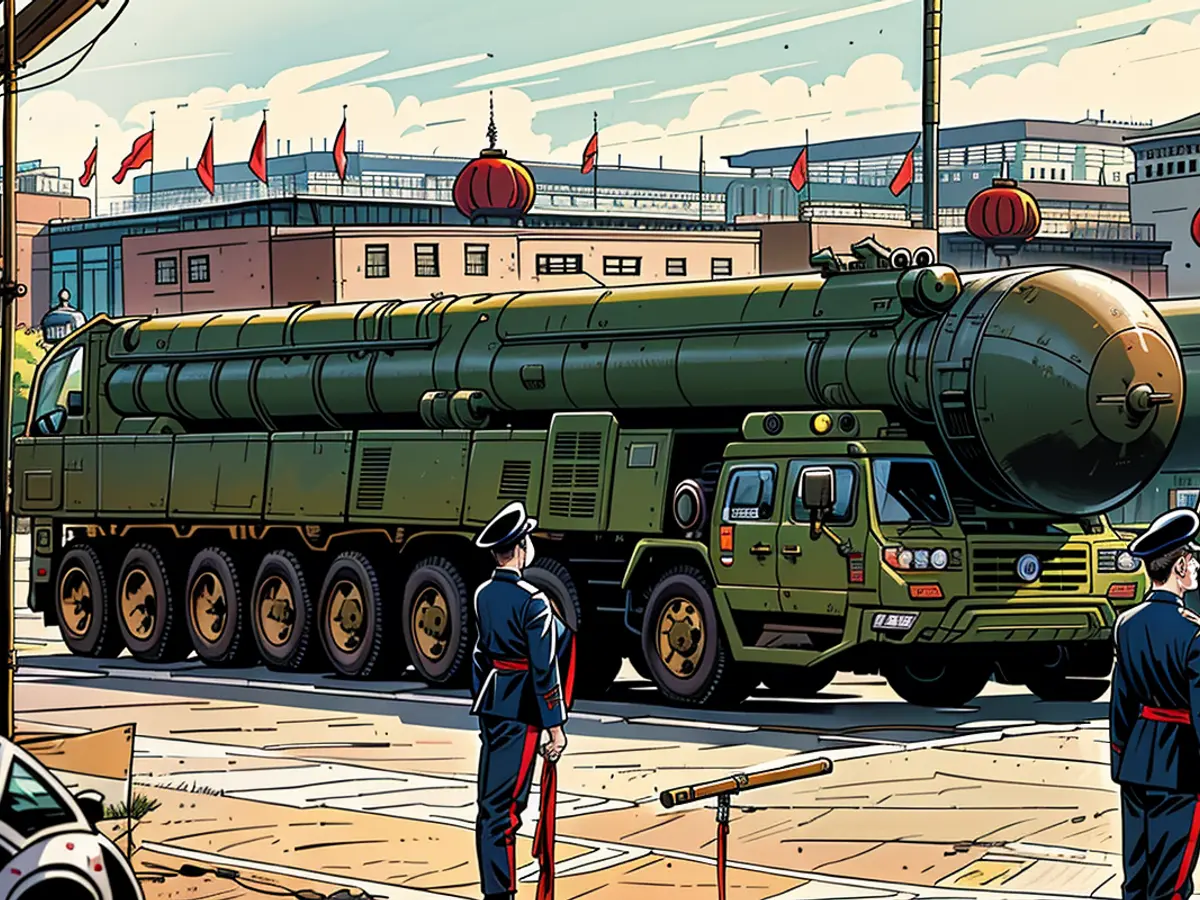China conducts a ballistic missile launch into the Pacific Ocean, marking a decades-long absence in open demonstrations, amidst escalating regional tensions.
A dummy-loaded Intercontinental Ballistic Missile (ICBM) was launched at 8:44 a.m. Beijing time, according to the Chinese Defense Ministry, which crashed into a predetermined area in the deep waters of the Pacific Ocean, as per a communiqué. The statement did not disclose the missile's flight path or precise landing spot.
The launch was a routine exercise by the People's Liberation Army Rocket Force, stated the ministry, asserting that it was not aimed at any specific nation or objective. This event follows China and Russia's joint naval drills in the vicinity of Japan's coastline.
China reportedly alerted relevant foreign countries regarding the test, as Grove Xinhua, the state news agency, detailed in a different bulletin, although it did not reveal the countries informed.
The exercise successfully assessed the functionality of weapons and equipment as well as the proficiency of the troops, resulting in the attainment of its objectives, Xinhua added.
This marks the first instance in over four decades that China publicly confirms a successful ICBM test in the Pacific Ocean.
The People's Republic of China acknowledged the triumph of its initial ICBM test in 1980, which was launched into the South Pacific Ocean from the Jiuquan Satellite Launch Center located in Northwest China's desert.
Under the administration of President Xi Jinping, China has strengthened its nuclear capabilities and modernized the PLA's Rocket Force, an elite entity responsible for managing China's rapidly increasing inventory of nuclear and ballistic missiles.
Recent satellite imagery hints at the building of hundreds of silos for intercontinental ballistic missiles in China's deserts, and the United States Defense Department anticipates a significant increase in the number of nuclear warheads in Beijing's arsenal within the next ten years.
According to the Pentagon's annual report on China's military, as of 2023, China possessed more than 500 operational nuclear warheads. By 2030, the presumption is that China will possess in excess of 1,000 warheads.
This ICBM launch by China in the Pacific Ocean stirs conversations at the global level, as its impact is felt across the world.In light of China's strengthened nuclear capabilities and the ongoing modernization of its PLA Rocket Force, Asian nations, especially neighbors, pay particular attention to such developments.







